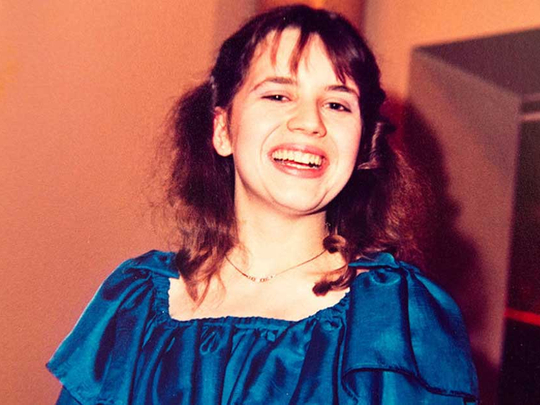
London: Violinist Rosemary Johnson has spent the past 26 years coming to terms with the reality that she would never make music again. A member of the Welsh National Opera Orchestra, she was destined to become a world-class musician before a car crash in 1988 left her in a coma for seven months.
Johnson suffered a devastating head injury, robbing her of speech and movement and meaning that she could only pick out a few chords on the piano with the help of her mother Mary. But now, thanks to cutting-edge technology, she is creating music again, using just the power of her mind.
In a 10-year project led by Plymouth University and the Royal Hospital for Neuro-disability in London, her brain has been wired up to a computer using Brain Computer Music Interfacing software. By focusing on different coloured lights on a computer screen she can select notes and phrases to be played and alter a composition as it is performed by live musicians. The intensity of her mental focus can even change the volume and speed of the piece. It is the first time that Miss Johnson, 50, has been able to create music in decades and has been an emotional experience for the her, as well as the scientists involved in the programme.
“It was really very moving,” said Professor Eduardo Miranda, composer and director of the Interdisciplinary Centre for Computer Music Research at Plymouth University. “The first time we tried with Rosemary we were in tears. We could feel the joy coming from her at being able to make music. It was perfect because she can read music very well and make a very informed choice.
“The great achievement of this project is that it is possible to perform music without being able to actually move. She is essentially controlling another musician to play it for her. “It’s not yet possible to read thoughts but we can train people to use brain signals to control things.”
Three other disabled patients who live at the hospital have also been trained to use the technology and have been working alongside four able-bodied musicians from the Bergersen string quartet, who play the music in real time as it is selected. Each patient wears an EEG cap furnished with electrodes, which can read electrical information from their brain. They are paired with a member of the string quartet, who views the musical phrases on a screen as they are selected in real time.
The technology works like a “musical game”, where the players select pieces of melody at certain times of the performance to augment the overall work, composed by Prof Miranda. They are called The Paramusical Ensemble and they have already recorded a piece of music entitled Activating Memory, which will be heard for the first time at the Peninsula Arts Contemporary Music Festival in Plymouth later this month. Miss Johnson’s mother Mary, 80, of Hounslow, west London, said the project had inspired her daughter.
“Music is really her only motivation,” she said. “I take her to the grand piano in the hospital and she can only really play a few chords, but that was the only time she shows any interest. She doesn’t really enjoy anything else. “But this has been so good for her. I can tell she has really enjoyed it.”
— The Telegraph Group Limited, London 2016












